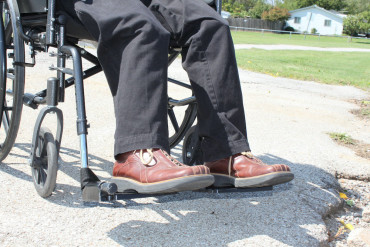What To Expect Following A Spinal Cord Injury

Spinal cord injuries are not typically isolated medical events. Often, people with these types of injuries also suffer from secondary complications. While some of the complications of spinal cord injuries are minor, only causing mere nuisances, others are severe, even life-threatening.
Unfortunately, spinal cord injuries sometimes happen due to someone else’s negligence. When that’s the case, it’s important to consult an experienced personal injury attorney to represent you legally.
What Complications Are Associated With Spinal Cord Injuries?
Complications associated with spinal cord injuries vary from individual to individual, depending on the location and severity of the injury. However, the following are some of the major complications that may occur due to spinal cord injuries:
Chronic Pain: Most people with spinal cord injuries have some type of chronic pain. Typically, it is one of these three:
- Musculoskeletal – This type of pain usually happens when you overuse specific bones, muscles, or joints. For instance, some spinal cord injury victims overuse their arms to navigate wheelchairs.
- Visceral – Visceral pain originates from body organs and usually occurs in the pelvic or abdominal area. It may indicate bladder or bowel complications.
- Neuropathic – This pain results from nerve damage and can cause pain in various places, even those areas where someone is otherwise paralyzed.
Breathing Difficulties: One of the most common complications of spinal cord injury is breathing problems. People with higher level cervical injuries, C-1 to C-5, frequently experience difficulty breathing because of impaired diaphragm innervation. The diaphragm is the main muscle that is used for breathing. If the spinal cord injury is severe enough, the individual can die due to the inability to breathe.
Spinal cord injury can also cause a higher risk of getting pneumonia, one of the most common causes of death in spinal cord injury patients.
Autonomic Dysreflexia: This is a condition in which an individual’s autonomic nervous system overreacts when stimulated. The autonomic nervous system impacts involuntary functions like temperature regulation, blood pressure, heart rate, bladder, and bowel activity. Any type of stimulus below the level of injury can result in autonomic dysreflexia. For example, a full bladder, wearing pants that are too tight, and extreme temperatures can all trigger it. The symptoms of autonomic dysreflexia include sweating, anxiety, increased blood pressure, headaches, blotchy skin, or blurry vision.
Bladder and Bowel Dysfunction: Bladder and bowel dysfunction are common following a spinal cord injury because these organs are located at the lower area of the spinal cord, and complications affect functions that are below the injury level. Because there is impaired sensation, many people with spinal cord injuries can’t tell when they have to go to the bathroom. This can cause poor bladder and bowel control, pain, constipation, and accidents.
Spasticity: Spasticity is when there are involuntary muscle contractions. When a spinal cord injury happens, the flow of signals between the brain and the body is interrupted, and the signal is sent back to motor cells in the spinal cord, which causes a reflexive muscle spasm. With muscles continually contracting, they become tight, making movement painful and difficult.
Scoliosis: Scoliosis is a medical condition in which the spine is curved to the side. The condition usually occurs in adolescents but can also develop in adults when they have suffered a traumatic event like a spinal cord injury. Over time, people who continuously compromise their posture due to nerve damage in spinal cord injury can develop neuromuscular scoliosis.
Spinal Cord Injury Lawyers in Pennsylvania
Victims of spinal cord injuries can expect chronic pain, mounting medical bills, lost wages, reduced future earning potential, and a drastic lifestyle change. However, when the damage is due to premises liability, a car wreck, or medical malpractice, victims might be able to pursue a lawsuit against the responsible party.
At Ross Feller Casey, our lawyers work diligently for clients to help them win the compensation they deserve for their damages and pain and suffering. We handle the most catastrophic spinal cord injury cases and fight for the rights of our clients.
Our staff includes medical doctors who are Ivy League-educated physicians to review medical records and consult on cases. Together with our expert attorneys, our doctors provide you with the most potent legal team, one with an unrivaled track record of winning these types of cases. As a result, Ross Feller Casey attorneys have won over $3 billion for our clients, and we might be able to help you with your catastrophic spinal cord injury, too.
Contact our office to schedule a free consultation to discuss your case. Spinal cord injury claims are handled on a contingency basis, so you don’t pay until we win your lawsuit.
Disclaimer: Ross Feller Casey, LLP provides legal advice only after an attorney-client relationship is formed. Our website is an introduction to the firm and does not create a relationship between our attorneys and clients. An attorney-client relationship is formed only after a written agreement is signed by the client and the firm. Because every case is unique, the description of awards and summary of cases successfully handled are not intended to imply or guarantee that same success in other cases. Ross Feller Casey, LLP represents catastrophically injured persons and their families in injury and wrongful death cases, providing legal representation in Pennsylvania and New Jersey.





